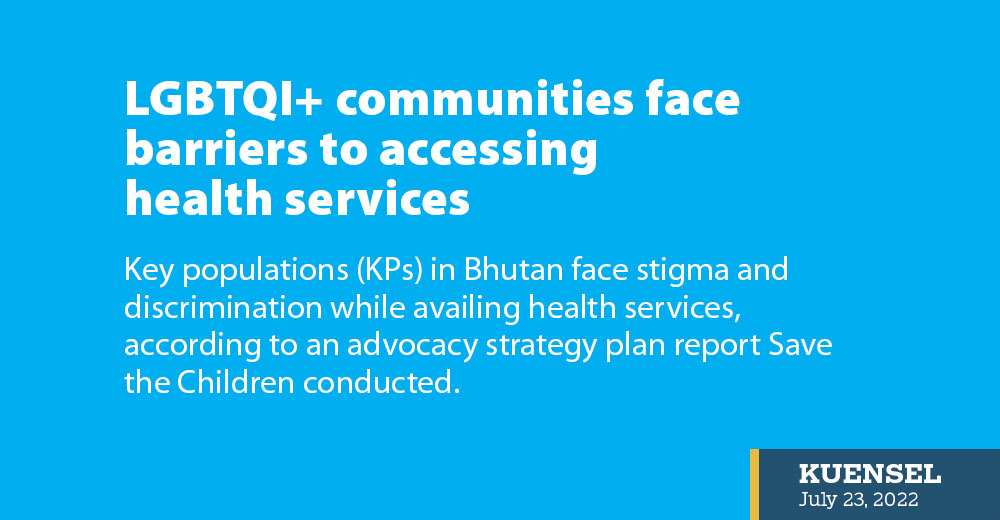Dechen Dolkar
Key populations (KPs) in Bhutan face stigma and discrimination while availing health services, according to an advocacy strategy plan report Save the Children conducted.
KPs are men who have sex with men (MSM), sex workers, transgender people, people who use drugs, and people living with HIV.
According to the report conducted in 2020, stigma and discrimination prevent key and vulnerable populations in Bhutan from availing vital health services, thereby increasing the risk of HIV transmission. “Stigma and discrimination are increasingly recognised as major obstacles to achieving the goal of ending HIV and AIDS epidemic. STIs such as syphilis and gonorrhoea are common among them.”
Lesbian, gay, bi-sexual, transgender, queer and intersex (LGBTQI+) communities also do not visit hospitals due to fear of confidentiality breaches regarding their sexual orientation.
The report stated that attitudes of health workers also fuel stigma among LGBTQI+ as most of them are not sensitised on gender expression.
A member of LGBTQI+ told interviewers that they do not avail x-ray services due to self-stigma as they have to expose their bodies.
Members said they visit health information and service centre (HISCs) as they are familiar with the officials, but comprehensive health services are not available at HISCs.
The report cited examples where LGBTQI+ members told interviewers that doctors are insensitive towards them and some told them they deserve to be infected.
“I was suffering from severe depression and went for treatment where I was treated like a mad person,” a member told interviewers.
The report claimed key populations also face legal discrimination against because of their sexual orientation or behaviour, thereby hindering their regular access to health and other social services.
It stated LGBTQI+ experience stigma and discrimination from various segments of society, mainly because of their low educational attainment and lack of employment.
According to the Bhutan key population size estimation report 2020, there are around 1,670 MSM, 74 transgender women and 292 transgender men in the country.
The assessment was conducted by Save the Children in collaboration with National AIDS Control Programme under Ministry of Health and the key populations organisations to reduce stigma and discrimination among the key populations.


